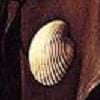| View previous topic :: View next topic |
| Author |
Message |
|
|
Angel M Cazares
 Joined: 23 Sep 2010
Joined: 23 Sep 2010
Posts: 5484
Location: Iscandar
|
 Posted: Tue Feb 17, 2015 9:24 pm Posted: Tue Feb 17, 2015 9:24 pm
|
 |
|
|
The first thing that comes to mind when I think about Haibane Renmei is a very atmospheric setting. I enjoy the setting probably more than the characters. I also have an emotional connection to this show, and the well scene was also powerful and touchy to me. The first time I watched the series the ending was odd and somewhat frustrating. But I have come to appreciate the ending and the whole show with every rewatch.
I want to thank Matt for sharing his life experiences at the time he watched Haibane Renmei. It makes me happy to hear that this anime was able to help you.
|
| Back to top |
|
|
|
Shadowrun20XX
 Joined: 26 Nov 2007
Joined: 26 Nov 2007
Posts: 1936
Location: Vegas
|
 Posted: Tue Feb 17, 2015 10:20 pm Posted: Tue Feb 17, 2015 10:20 pm
|
 |
|
|
Renmei was quite the change from NieA under 7s wacky demeanor. Shabu Shabu. ABE's art is still fantastic to this day. Still a fan of his illustrations.
|
| Back to top |
|
|
|
|
kotomikun
Joined: 06 May 2013
Posts: 1205
|
 Posted: Wed Feb 18, 2015 12:29 am Posted: Wed Feb 18, 2015 12:29 am
|
 |
|
| nbahn wrote: | | This is just another way of saying that that Haibane Renmei is the antithesis of Big-Bombastic-Bad-ass Showboating-Shounen Action. |
It is. But, to me, it demonstrated pretty well that the exact opposite of hyperactive randomness is just... dullness.
Akane the Catgirl pretty much covered what it has to say, which... isn't much. Some very basic stuff about depression and reaching out, framed confusingly. (They're clearly in purgatory--they have halos and angel wings and vague memories of past lives and so on--and the process of presumably going to Heaven is supposed to be a good thing, the first one to go was the happiest one, but somehow that's a representation of suicide? Why is everyone upset when that happens? Then Rika nearly goes to Hell or something because she's legitimately depressed, which is metaphorical but in-context just seems weird, and cruel for no good reason. Such confuse. Partly I just can't take it all as one big metaphor when it has such a blatantly Christianity-esque setting, since that brings up questions of why God created this bizarre scenario of requiring happiness and/or sociability to pass on, and such.) A whole lot of slice-of-life nothingness, buildups to more things that don't happen.
It's one of those shows that you're required to like, in many circles, if you want to be considered Smart and Mature, which makes me even less inclined to enjoy it. You don't have to make something tedious and devoid of all content except a few closely related adult themes that everyone already knows about for it to be "grown-up," or meaningful to someone who is. Tatami Galaxy is an adult equivalent of madcap shonen action. Haibane Renmei is something else entirely, and clearly isn't for me.
|
| Back to top |
|
|
|
|
Akane the Catgirl
Joined: 09 Oct 2013
Posts: 1091
Location: LA, Baby!
|
 Posted: Wed Feb 18, 2015 12:55 am Posted: Wed Feb 18, 2015 12:55 am
|
 |
|
| kotomikun wrote: | | ...some very basic stuff about depression and reaching out, framed confusingly. (They're clearly in purgatory--they have halos and angel wings and vague memories of past lives and so on... |
Actually, according to Yoshitoshi ABe, the man behind Haibane Renmei, no, they aren't.The Haibane are not angels, and the only reason he gave them wings and halos was for pure aestheticism. It hasn't stopped the fanbase from using Glie=Purgatory as the most popular interpretation. For now, it's just very popular fanon.
| kotomikun wrote: | | ...and the process of presumably going to Heaven is supposed to be a good thing, the first one to go was the happiest one, but somehow that's a representation of suicide? Why is everyone upset when that happens?
|
It isn't. At all. The Day of Flight symbolizes the completion of a Haibane's character arc, allowing them to move on to better things. Kuu's Day of Flight only happens after being able to finally mature as a person, thanks to Rakka's prescence. Once again, Glie=Purgatory isn't exactly true, but you can interpret the Day of Flight to be a metaphor for reincarnation or ascension to Heaven.
| kotomikun wrote: | | ...Then Rika nearly goes to Hell or something because she's legitimately depressed, which is metaphorical but in-context just seems weird, and cruel for no good reason. Such confuse. Partly I just can't take it all as one big metaphor when it has such a blatantly Christianity-esque setting, since that brings up questions of why God created this bizarre scenario of requiring happiness and/or sociability to pass on, and such.) A whole lot of slice-of-life nothingness, buildups to more things that don't happen. |
One- it's Reki. Not Rika. Two- She brought it onto herself for refusing to change her nihilistic and fatalistic attitudes. Remember, she's afraid to hope for anything better. Rakka only saves her by convincing her to admit that she needs her. Friendship is forgiveness, after all.
| kotomikun wrote: | | It's one of those shows that you're required to like, in many circles, if you want to be considered Smart and Mature, which makes me even less inclined to enjoy it. You don't have to make something tedious and devoid of all content except a few closely related adult themes that everyone already knows about for it to be "grown-up," or meaningful to someone who is. Tatami Galaxy is an adult equivalent of madcap shonen action. Haibane Renmei is something else entirely, and clearly isn't for me. |
You don't have to like the show. You don't have to like anything critically-acclaimed. For example, I despise the works of Jack London, but I still respect him on many levels because he knew how to tell a story. (Most of my hate stems from having to read one of his novels and two of his short stories in eighth grade.) Likewise, Haibane Renmei is not for everyone. It can be plodding if you aren't used to a slow pace, but I do believe it is a masterpiece, and I honestly think you're looking for something that wasn't there in the first place.
|
| Back to top |
|
|
|
|
Neko-sensei
Joined: 19 Jan 2007
Posts: 285
|
 Posted: Wed Feb 18, 2015 1:10 am Posted: Wed Feb 18, 2015 1:10 am
|
 |
|
|
Great thoughts. This show may not be everybody's cup of welcome-to-Old-Home tea, and that's fine, but danged if it doesn't get my brain going like no other anime around, and express most perfectly pretty much everything I think it's important to express. To put it another way, loving Haibane Renmei is definitely not a requirement for being an "intellectual" anime viewer, whatever the heck that means, but the series rewards sustained attention and analysis in huge heaping spades.
Please allow me to go into 744 words of excruciating exemplary detail.
I'm not sure that anybody has quite hit upon what is for me the real, lasting appeal of the series: yes, Haibane Renmei tells a wonderful story about two people who need to find salvation (and who discover that salvation can only be found when you save someone else), but its true genius lies in its focused, profound, and deeply moving consideration of that eternal question: what does it mean to be in the world?
It's no great insight to say that Glie is the world, and the Haibane who come in to it "suddenly, and disappear just as suddenly" are incarnations of the desire to find one's place in that world. In this regard, Glie is a kind world: from the moment they're born, the residents of Old Home are instructed to be "good Haibane." They're given some rules to help them understand their reality, and they're told that they must work. The work they do expresses their beings, connects them with the town, and allows them to help others as others help them—through their labor, each Haibane finds a place and becomes "good."
But Rakka falls into despair, not only because of the shock of Kuu's disappearance, but because she cannot find this place. Note how her sense of uselessness in the episodes leading up to Kuu's Day of Flight cascades into her illness, and how her Sin-Bound period is expressed in her self-imposed separation from the world: she refuses to open her door to talk to Hikari or to participate in the sewing; when walking with the children, she trails behind, isolated; even eating is an expression of guilt for her, as she uses the notebook pages she feels she hasn't earned and finds a lonely place to have her pea-soup repast. Lacking work, she lacks community; lacking community, she has fallen outside the world.
Rakka is forgiven because the bird(s) help her see that she is an outcast only of her own choosing; reminded of her own ability to love and to accept failure (both hers and others') within that very love, she is given a job—real work, that expresses her self and lets her experience the world in the way she most requires. Thus she gains a true name, and most crucially, she gains the ability to help Reki see that no salvation comes from outside the world. The Haibane are incarnate, and salvation comes only by genuinely facing that incarnation. ("I wanted God to come and forgive me!" Reki wails, but such transcendental epiphanies are purely chimerical. As the Communicator's epilogue tells us, Reki's life in Old Home was her salvation, not her efforts to prove herself to God.)
Thus we see that in its location, focus, and narrative Haibane Renmei distills all the Great Existential Questions—Who am I? Why am I here, wherever "here" is? How shall I live? Is there any purpose to any of this?—into this single sacred mystery of incarnation. This is why the show receives so much attention in religious circles. Without any dogma, and without any crass pretense of certainty, it addresses the same dilemma every great spiritual tradition has sought to explore, and reaffirms the basic value of simply being here. The series' conclusion may be no more profound than "do good work, be good to others, and never stop seeking your place," but how organically that conclusion is reached, how beautifully it's shown in action instead of in exhortation, and how mystically this quest to achieve the mundane is demonstrated to be the highest spiritual calling!
[This may be the main thrust of the show, but I'm convinced that it can provide interesting insights into literally any topic, from conflict resolution to pedagogy. I once wrote a paper on Haibane Renmei for a lit theory course, and decided to take a Marxist approach because I felt I could nicely limit and focus my analytical options—if I tried Feminist or reader-response or semiotic criticism I figured I'd never run out of things to say—by building off the concept of a "Marxist Paradise" where the worker was directly involved in the consumption of her labor, and by remaining as conservatively Marxist as possible.
[That paper ended up being 70 pages long. I revised it down from 110.
[At this point, when asked, I just say that Haibane Renmei is about "birth, death, and everything that happens in between."]
|
| Back to top |
|
|
|
nobahn
 Subscriber
 Joined: 14 Dec 2006
Joined: 14 Dec 2006
Posts: 5132
|
 Posted: Wed Feb 18, 2015 2:48 pm Posted: Wed Feb 18, 2015 2:48 pm
|
 |
|
|
^
A well written monograph, Neko-sensei; it's very well written, indeed. I'd just love to read your 70-page paper.
|
| Back to top |
|
|
|
albanian
 Joined: 18 Nov 2005
Joined: 18 Nov 2005
Posts: 133
Location: UK
|
 Posted: Thu Feb 19, 2015 7:46 am Posted: Thu Feb 19, 2015 7:46 am
|
 |
|
|
I am surprised more was not made of the links between Haibane Renmei and Haruki Murakami's novel Hard-Boiled Wonderland and the End of the World. It cannot be denied that ABe borrowed the 'End of the World' setting for his image of Glie, but I wonder if he was also influenced by Murakami's concept of the purpose of 'End of the World'? The fact that newcomers to 'End of the World' are stripped of their 'shadows', lose their 'minds', and are rid of their 'dreams' (memories?) suggests a place of cleansing and renewal which may have hints of purgatory but which reminds me more of the Buddhist concept of nirvana - or at least a time of preparation for entry into nirvana, the place of liberation from the passions and emotions of life and the ultimate suppression of the ego.
OK. This may not exactly fit the nature of Glie any more than does purgatory. Could it be that ABe has simply woven together a disparate variety of sources to create his own brilliantly individual vision of the after-life.....?
|
| Back to top |
|
|
|
|
charpkun
Joined: 22 Sep 2009
Posts: 13
|
 Posted: Fri Feb 20, 2015 10:41 am Posted: Fri Feb 20, 2015 10:41 am
|
 |
|
|
Regardless of the length (which I did think was a bit brief considering that all the other deep dive podcast episodes were much longer), I just appreciate that it's being brought up and discussed again. This really should be a show that more people know about.
And I appreciated Matt's guest role in the podcast. Like him, Haibane Renmei helped me break out of a tough depressive period, and I still recognise it today as a turning point in my life. I appreciate knowing that it has been transformative for other people as well.
Like Hope, I wish they did make a sequel or extra that explored the factory Haibane more. But I'm plenty happy with what the show managed to tell as is. More room for speculation.
|
| Back to top |
|
|
|
|
Ingraman
Joined: 07 Feb 2005
Posts: 1082
|
 Posted: Mon Feb 23, 2015 11:59 am Posted: Mon Feb 23, 2015 11:59 am
|
 |
|
|
I remember watching the fansubs of the series as it aired, and I loved the character designs, the low-key browns, greys, greens, etc. used in the art, and the design of the town of Glie. I imported the R2 DVDs as they were released, and later bought the Pioneer (Geneon?) DVDs as they came out here, making sure to track down the copies with pencilboards.
The podcast was interesting to listen to, especially Matt's view of the series and his own life at the time. It's been so long since I last watched the series that I'm definitely not remembering issues with the animation (either off-model art, or it being low-resolution). I do remember being quite disappointed when I read that the Japanese Blu-ray release wasn't very good. I'll try to revisit Haibane Renmei sometime soon.
|
| Back to top |
|
|
|
|
arromdee
Joined: 15 Mar 2010
Posts: 71
|
 Posted: Mon Feb 23, 2015 12:42 pm Posted: Mon Feb 23, 2015 12:42 pm
|
 |
|
|
To elaborate more on my reaction to the series, it seemed like the world was obviously an artificial place designed as a petri dish for humans. Let's face it, anyone who kidnaps people, wipes their memory, separates them from normal society, puts them in a walled-off environment, and lets them stew for a while before taking them to god-knows-where to be analyzed, are bastards. Doubly so if they decided to kidnap the most emotionally vulnerable people in the first place (the suicidal) and if the whole purpose of the experiment seems to be to study human shame.
Of course, it eventually became obvious that that's not what the writers were going for. I was still half-expecting a surprise ending where the characters figure out that it's an experiment, and that didn't happen, but even now I don't think anything in the show actually contradicts this idea.
|
| Back to top |
|
|
|
|
 Subscriber
Subscriber